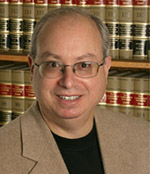Chapter 13 Bankruptcy and the self-represented individual
By Leon D. Bayer
Chapter 13 bankruptcy is an outstanding financial legal remedy for individuals overwhelmed with debt. Typical case results may include solving foreclosure problems and ending creditor harassment. Obtaining good results is not easy however, due to the extreme complexity of the laws and procedures.

For a variety of reasons, many individuals opt to act as their own attorney in bankruptcy cases, and they file Pro Se. People who are hard pressed for money are rightly worried about adding to their woes with the cost of hiring a lawyer, especially when they don’t know if legal representation makes any real difference in the outcome of a case. Henry E. Hildebrand, III has served as Standing Trustee for Chapter 13 matters in the Middle District of Tennessee since 1982. He states the following about the value of having a lawyer,
Filing bankruptcy is difficult, expensive and traumatic. It involves your entire family, directly or indirectly, and it can have a lasting impact on you and your future. The process is complicated and filled with traps for the unwary. It is important to have a good attorney by your side as you pilot through the treacherous shoals that is bankruptcy today, (emphasis added).
Ten Things To Look For When Selecting A Bankruptcy Attorney, By Henry E. “Hank” Hildebrand, III
 In some places like Southern California, the proliferation of bankruptcy petition preparers, (BPP’s) offers the potential Pro Se filer a tempting alternative to lawyers, simply because BPP’s work cheap. Many consumers automatically assume that a BPP must be a viable attorney substitute or else the BPP’s wouldn’t be allowed to ply their trade. Does it really matter when you don’t have an attorney representing you?
In some places like Southern California, the proliferation of bankruptcy petition preparers, (BPP’s) offers the potential Pro Se filer a tempting alternative to lawyers, simply because BPP’s work cheap. Many consumers automatically assume that a BPP must be a viable attorney substitute or else the BPP’s wouldn’t be allowed to ply their trade. Does it really matter when you don’t have an attorney representing you?
About one-third of all Chapter 13 cases filed last year in the Central District of California were filed Pro Se. A study of Pro Se case results was just issued by that court, entitled Access to Justice in Crisis: Self-Represented Parties and the Court. The facts are downright startling. This report summarizes what is known about self-represented, (Pro Se) bankruptcy filers, and it identifies what happens to their cases in comparison to attorney-represented cases. The report states,
Chapter 13 is typically considered the chapter of choice for those wage-earners seeking to catch up on missed car or house payments and avoid repossession of a vehicle or foreclosure of a home. Confirmation of the chapter 13 plan that provides for payment of such arrearages over many months is necessary to begin the process of making up for missed payments. Completion of a chapter 13 plan through discharge can take 36 to 60 months, and is very difficult to achieve even in attorney-represented cases. Approximately 55 percent of attorney-represented cases reach confirmation. The number of self-represented debtors that manage to get to confirmation of a chapter 13 plan is 0.4 percent – clearly demonstrating that it is nearly impossible for this population to succeed in chapter 13, (emphasis added).
Access to Justice in Crisis: Self-Represented Parties and the Court: Measuring Success
For anyone who would seriously consider filing Chapter 13 without a lawyer, this should be very sobering. As stated, if you file without a lawyer, your chances of gaining successful approval of your Chapter 13 bankruptcy plan is less than 1%, (and this remains true even if you use self-help services from a bankruptcy petition preparer). The Report also states, “Based on earlier studies, we know that the vast majority of debtors that Court records refer to as pro se are in fact assisted by BPPs. A 2003 study by the U.S. Trustee reported that only 3 percent of debtors filing were truly pro se.”
Chapter 13 is considered to be the bankruptcy case of choice for most people trying to save their homes from foreclosure. Confirmation of a Chapter 13 Plan is a critical milestone for having a successful Chapter 13 bankruptcy case.
Confirmation occurs if the court issues an Order approving the debtor’s proposed reorganization. This happens at a court hearing if the court finds that the Plan meets all of the necessary legal requirements. Failure to obtain confirmation approval normally results in the dismissal of the case, or conversion to a liquidation of assets under Chapter 7. The failure to obtain a confirmed Chapter 13 Plan often results in foreclosure of the debtor’s property.
Copyright © 2012 Bayer, Wishman & Leotta, All Rights Reserved – Special to Consider Chapter 13 – All Rights Reserved
Leon Bayer has been practicing bankruptcy law in Los Angeles, California since 1979. His primary focus is on representing individuals and small businesses. He is a founding partner in the law firm of Bayer, Wishman & Leotta and is a Certified Specialist in Bankruptcy Law. You can visit his professional website at www.bankruptcyblogger.org. Mr. Bayer authors the “Ask Leon” series on Nolo’s Bankruptcy, Debt & Foreclosure blog, and writes on bankruptcy topics for Nolo’s website. In addition, Mr. Bayer devotes a significant number of hours to volunteer legal services. The State Bar of California has commended Mr. Bayer for this work every year since 2004. Mr. Bayer’s professional affiliations and leadership roles are many, and include: President of the Los Angeles Bankruptcy Forum (1995-1996), member of the State Bar of California’s Law Advisory Commission on Personal & Small Business Bankruptcy Law (1996-2000), and exam grader and question writer for the State Bar Legal Specialization test on Bankruptcy. Mr. Bayer is a frequent lecturer on bankruptcy law. He has spoken at the former Bridging the Gap program for new lawyers, lectured on bankruptcy case law developments at a number of the State Bar of California Annual Meetings, and has presented bankruptcy law material at many other educational programs. Mr. Bayer’s frequent television appearances include interviews on KCAL9 News and EXTRA (where he weighs in on various celebrity bankruptcies). He has also served as a bankruptcy expert on many different radio shows and news stations, and is a frequent guest on KALW-FM public radio’s Your Legal Rights. Mr. Bayer is currently co authoring a revised edition of Stephen R. Elias’s The New Bankruptcy for Nolo. Other publications include The Essentials of Chapter 13, Daily Journal Report, December 18, 1987, Basic Bankruptcy, California Practice Handbook, Matthew Bender 1992, 1993 (contributing editor), and Personal and Small Business Practice in California, CEB Bankruptcy Practice Guide, 2003 (reviewer and contributing author).






